8 conclusions from the Ardennes Classics
Evenepoel ascends to another level, FDJ and Cavalli emerge, no wins for the women's powerhouses, safety concerns, La Flèche Wallonne – time for a change?
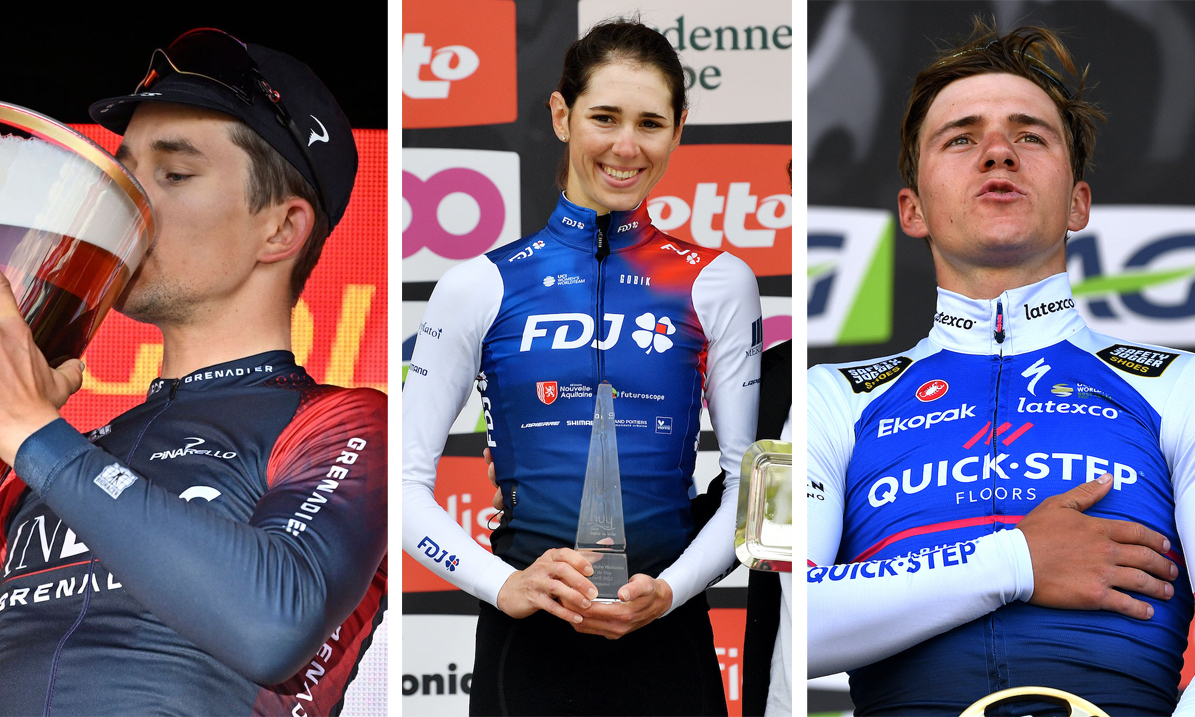
The Ardennes Classics - Amstel Gold Race, La Flèche Wallonne and Liège-Bastogne-Liège - have brought the curtain down on the Spring Classics.
This year's triple, normally held across one week of racing, was spread across two because Amstel Gold and Paris-Roubaix swapped dates due to the French Presidential election.
The new schedule may have had an impact on some riders and teams, but for the most part, and particularly after the previous two season affects by date changes due to COVID-19 health restrictions, the three events took place without major challenges.
Dreams came true for some but were cruelly dashed hopes for others in some of the most fascinating races of the season.
Cyclingnews takes a look at the most important conclusions from the men's and women's Amstel Gold, La Flèche Wallonne and Liège-Bastogne-Liège.
QuickStep-AlphaVinyl finally get their spring Classics win
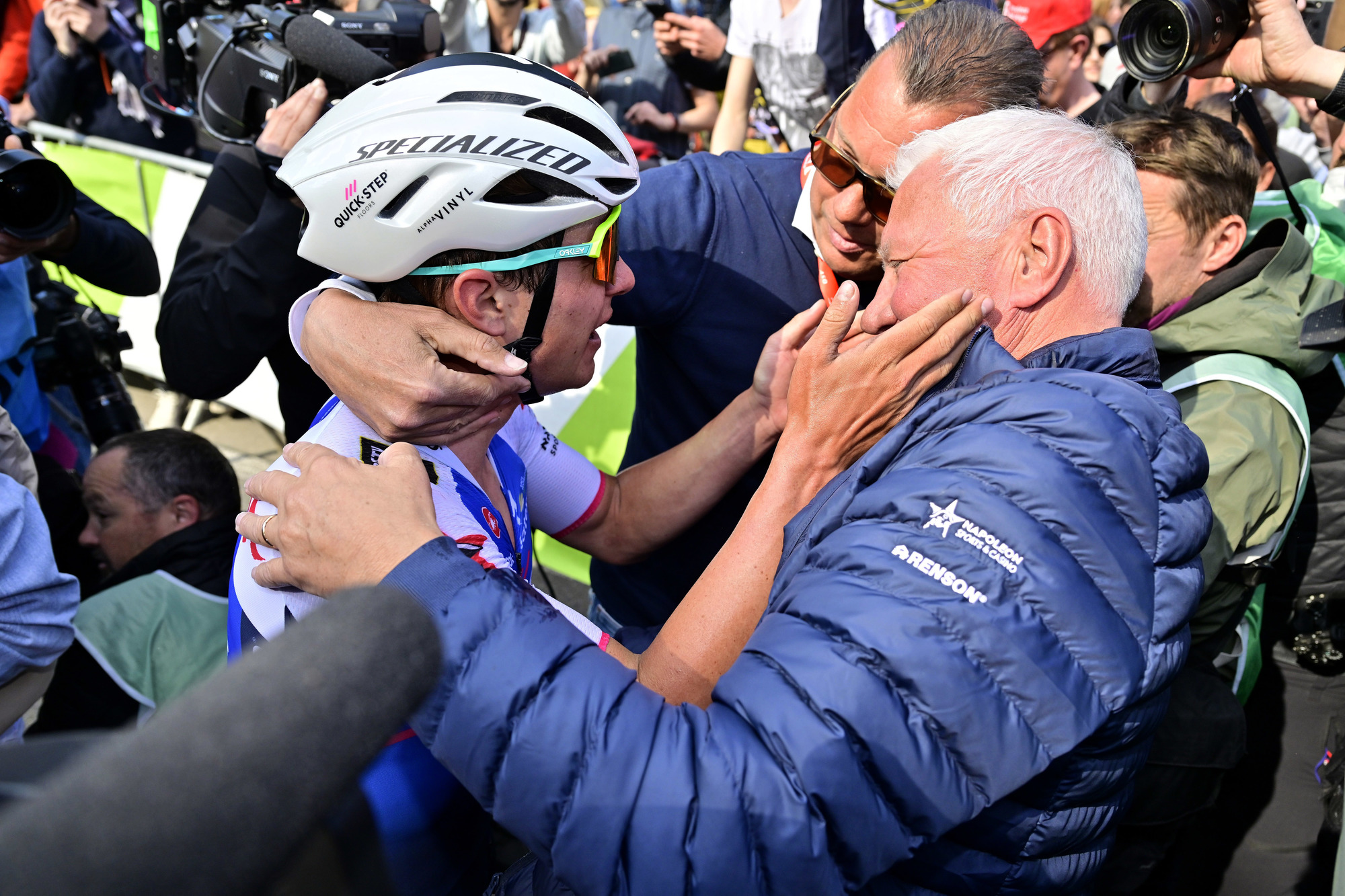
The single major story that has persisted throughout the spring Classics season, from the cobbles to the hills, had been that of QuickStep-AlphaVinyl's underperformance. Year after year, the Belgian powerhouse has been the strongest men's team of the spring racking up win after win, but 2022 was shaping up to be their worst campaign in recent memory.
Until Sunday's Liège-Bastogne-Liège, the team hadn't even scored a podium place, let alone a win, since Fabio Jakobsen's triumph at Kuurne-Brussel-Kuurne back in February. Illness had hit the team's main leaders through the Flanders Classics, while at race after race their riders were hit by bad luck – Yves Lampaert's Paris-Roubaix crash caused by a spectator - was a prominent example.
Get The Leadout Newsletter
The latest race content, interviews, features, reviews and expert buying guides, direct to your inbox!
Team leaders, such as directeur sportif Wilfred Peeters, insisted that process and team strength remained, though the early Ardennes races only brought minor success as Kasper Asgreen took sixth at Amstel Gold Race and Julian Alaphilippe finished fourth at La Flèche Wallonne.
At 190km into Liège, it looked like the bad luck bug had struck again when Julian Alaphilippe withdrew following a mass crash that saw him sustain a punctured lung and multiple fractures, but Remco Evenepoel had other ideas.
With his solo attack over the top of the the Côte de La Redoute, the 22-year-old blew away the doubts and adversities that the team had weathered during the past two months. Such was the ferocity of his attack, that, viewed on the big screens at the finish line in Liège, his victory and the QuickStep drought looked at an end almost as soon as he sprinted away from his rivals.
Team boss Patrick Lefevere has batted away questions on the team's spring Classics drought for weeks now and did the same at the finish in Liège. But with that Monument win in the bag – their 21st in 20 years – all memories of the troubled weeks that went before melted away, even if the root causes and concerns for the cobbled Classics may remain. (DO)
The beginning of a new era for FDJ Nouvelle-Aquitaine Futuroscope?
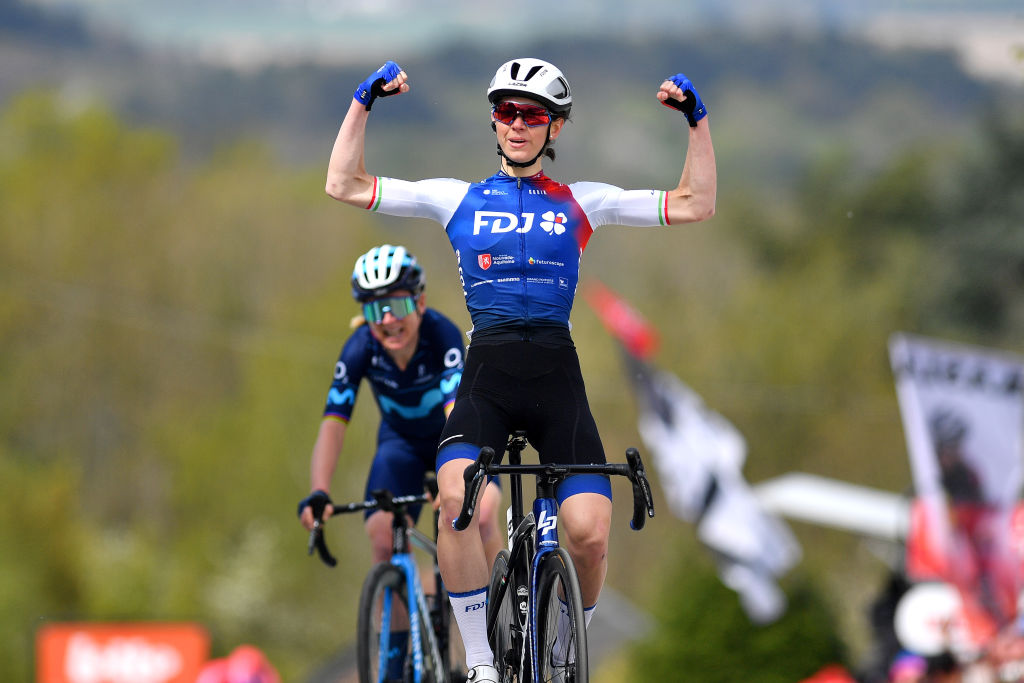
The positive COVID-19 tests of two key players in the French team – Cecilie Uttrup-Ludwig and Grace Brown – after Tour of Flanders meant that FDJ Nouvelle-Aquitaine Futuroscope could have been forgiven for fading into the background to some degree during the Ardennes Classics. However, sitting back and licking the wounds is far from their style, particularly this season where the all-or-nothing ethos has been clearly evident.
In fact, despite this far from ideal scenario on the run-in, FDJ were clearly the team of the Ardennes. Of course, that's primarily down to the spectacular performance of Marta Cavalli, with the 24-year-old first stunning with Amstel Gold Race victory and then quickly adding to her first Women’s WorldTour win ever by taking out the second of the trio of races at La Flèche Wallonne.
The Italian's wins were also the first ever victories for the team at the Ardennes and, in the space of ten days, doubled the number of Women's WorldTour victories on the team's tally since the start of the series in 2016.
Impressively, though, it wasn't just Cavalli that displayed notable strength with a maturity and depth evident in the team. Victorie Guilman was caught before the final run of the Cauberg at Amstel Gold Race and Evita Muzic and Brodie Chapman closed gaps at Flèche. Then, when Grace Brown rejoined the squad for the finale at Liège-Bastogne-Liège, she delivered a well-timed attack at around 22km to go and even after being caught – and with more solid teamwork as Cavalli worked to keep the pace high on the run in – won the sprint from the chase group of six to take second behind solo winner Annemiek van Vleuten.
That was a performance which meant FDJ was the only team other than SD Worx to make it to the podium of every one of the Ardennes Classics this year, and the steps were higher than those the world's number one women's team took in every race. The promise shown by the French team at the start of the season – with new signings complementing riders reaching a stage of their career where they were ready to blossom – was realised at the Ardennes.
This could well be the beginning of the era where FDJ Nouvelle-Aquitaine Futuroscope takes its place alongside SD Worx and Trek-Segafredo as one of the dominant teams in women's cycling. (SG)
'What could have been?' for the men's superstars
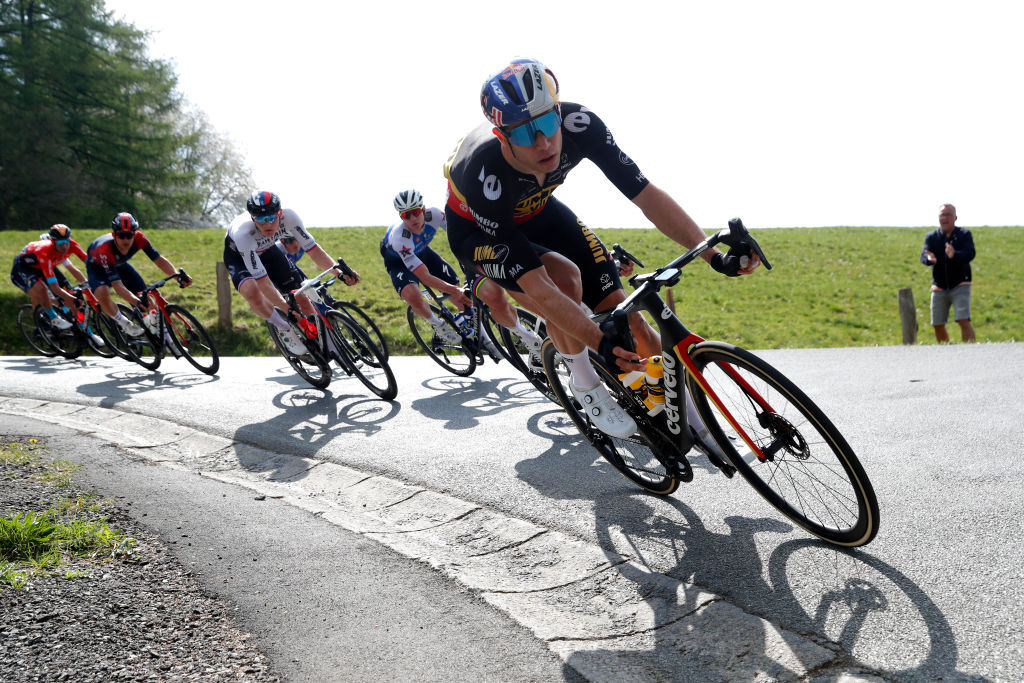
At the start of the Ardennes Classics, the list of competitors set to take on the races could have made any fan's mouth water, with names such as Mathieu van der Poel, Tadej Pogačar, Julian Alaphilippe, Tom Pidcock, and Wout van Aert all set to race part of all of the triple-header.
It would have been an easy bet to predict that one of more of those stars would add to their glittering palmarès during the races, but each one of them has walked away from the Ardennes empty-handed.
Outside factors – a horror crash for Alaphilippe on Sunday, and the death of Pogačar's fiancée's mother – conspired against some of the riders. For Pidcock, the reason for a lack of results seems to be entirely form-based, while Van der Poel and Van Aert came away with a fourth place at Amstel and a podium at Liège.
Still, though, one might have expected more from this list of the sport's superstars heading into the week, especially after some of their previous displays this spring. In the end, the lack of performance from some of the biggest names in the peloton didn't detract from the action, from Michał Kwiatkowski's dramatic triumph in Limburg to Remco Evenepoel's explosive attack in Liège.
Some of them might be ending their visit to the Ardennes thinking what could have been. (DO)
Increased strength of the women's peloton
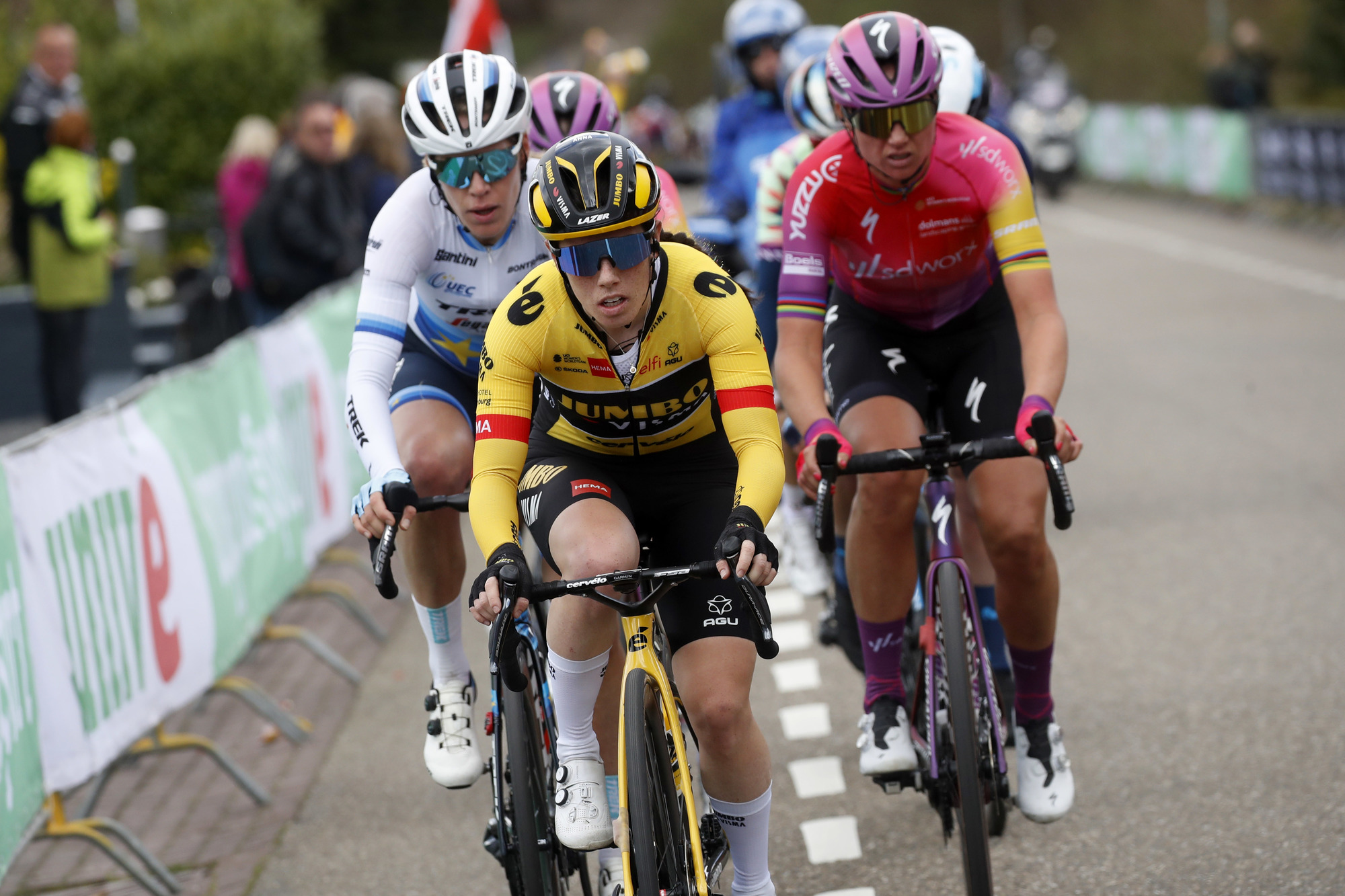
There is no denying that the women's peloton has taken another big step forward in terms of its overall strength since the introduction the Women's WorldTour in 2016 and the two-tier teams system in 2020. Specifically, the introduction of a minimum salary for the top-tier of teams has meant that women can train and compete on a full-time basis leading to a greater overall strength across the best teams in the world.
No one has witnessed this growth more so than Annemiek van Vleuten, a rider who has built a name for herself upon audacious solo attacks that have netted her victories at the Yorkshire World Championships, Giro d'Italia Donne, and indeed twice at Liège-Bastogne-Liège, among many others.
This year, however, her efforts to thwart her rivals with long- and short-range solo attacks have been largely unsuccessful. One major reason is that the other teams are just too strong now to ride away from during WorldTour races.
Teams like SD Worx, Trek-Segafredo and Canyon-SRAM have previously shown such collective strength but emerging teams like FDJ Nouvelle-Aquitaine Futuroscope, Jumbo-Visma, Team DSM, UAE Team ADQ are now often present with multiple riders in the finals, and placing inside the top five and top 10, and not just their heavy-hitters like Marianne Vos, Lorena Wiebes or Marta Bastianelli.
Van Vleuten acknowledged that while her power and form are better than they have ever been this spring, it is no longer 'easy' to win races.
"I notice that the level is growing, so I'm also better but there are more girls that are able to win. I think it's the development we want to have. OK, it's not so easy anymore to win, but it also makes every win more beautiful if you really need to fight for it," she said after winning Liège-Bastogne-Liège on Sunday. (KF)
Evenepoel ascends to another level
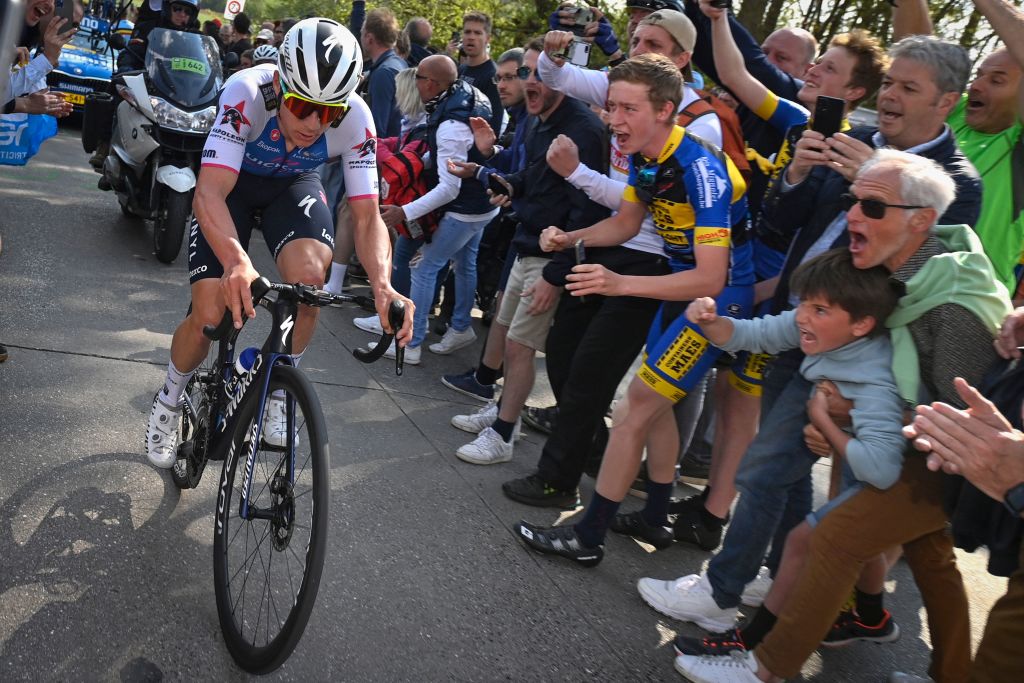
Ever since he burst onto the pro scene three seasons ago – and reaching back to his junior years if you were paying attention – Remco Evenepoel (QuickStep-AlphaVinyl) has been one of the most exciting young riders in the sport.
From his 10-minute junior road race victory at the 2018 European Championships, to his stunning Clásica San Sebastián win a year later, and his eight pro stage race wins, the 22-year-old has demonstrated what can seem like an unstoppable combination of time trialling and soloing to great effect.
Heading into this spring, however, Evenepoel's wins – numerous as they may be –have come on a scale below the biggest races in the world. Races like the Coppa Bernocchi, Tour de Pologne, Vuelta a Burgos, and Volta ao Algarve are storied and prestigious race in their own right, but it's fair to say that the Belgian hadn't yet shown the same dominance on the biggest stage.
His Il Lombardia crash and the subsequent long-term recovery – both physical and mental – have affected him greatly over the past year or so, as Evenepoel admitted himself on Sunday after his Liège win. But the race, and the manner in which he achieved victory, was the first time he had been "the best Remco" since that Lombardia crash, he said.
Ever since his return to racing following the crash at last year's Giro d'Italia, Evenepoel has been subject to criticisms and questioning, even while winning races. Since the start of 2022 he has seemed 'back to normal', even if fades during Tirreno-Adriatico and Itzulia Basque Country brought further questions over whether he'd progress to success at that very top level of races.
Any doubts about that must surely have been dispelled by now, such was the dominant manner of his victory in Liège, which saw him leave the peloton behind with apparent ease on the Côte de La Redoute. Evenepoel has still to confirm his Grand Tour talents but he is now a Monument winner and on Sunday announced himself at the highest level of them all. (DO)
No wins for the women's powerhouses
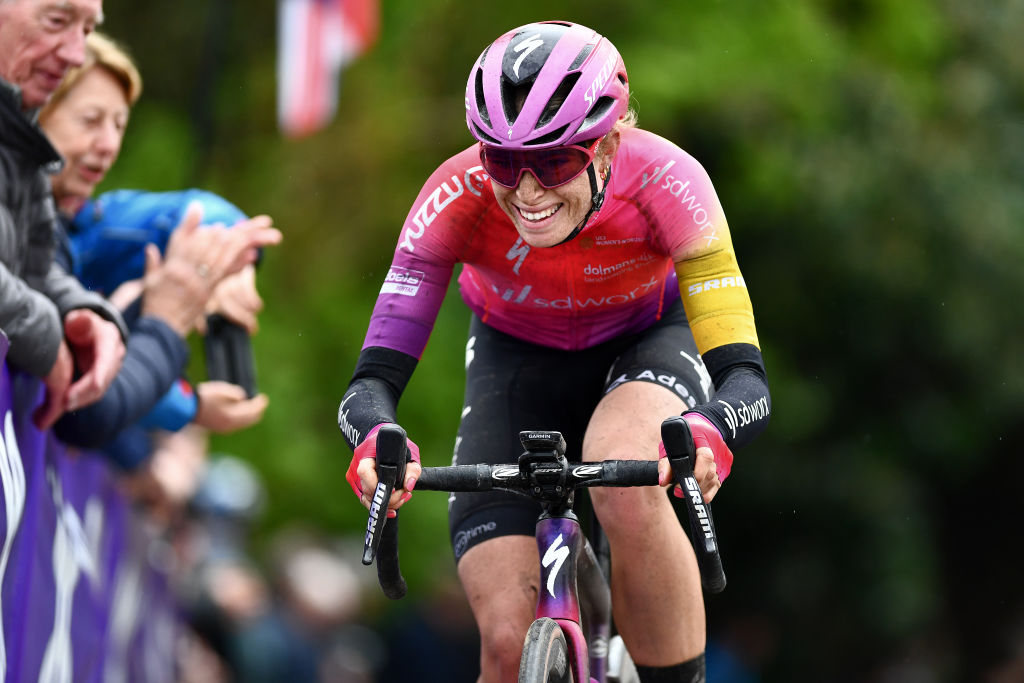
It was no surprise that the two strongest teams in the women's peloton largely dominated the early exchanges of the season, taking out 13 wins between them, including six of seven Women's WorldTour races and both cobbled Monuments at the Tour of Flanders and Paris-Roubaix.
But their dominance was cut through come the Ardennes Classics as Marta Cavalli (FDJ Nouvelle-Aquitaine Futuroscope) broke through to win the first two races of the triple while Annemiek van Vleuten (Movistar) concluded the races with a win of her own.
SD Worx, meanwhile, took two third places and a second via Demi Vollering, as Trek-Segafredo's Elisa Longo Borghini took fifth, sixth, and eighth places – both sets of results a way off their dominant best.
Of course, both teams had riders – in SD Worx's case multiple – up in contention for the win at the three races, and things could easily have gone their way on another day, especially when Cavalli stole away in the final of Amstel Gold Race.
The squads will come away from spring more than happy with how their campaigns have gone – Ashleigh Moolman Pasio said as much after Liège – but the results in the Ardennes will have come as something of a disappointment given the strength of the two teams. (DO)
La Flèche Wallonne – time for a change?
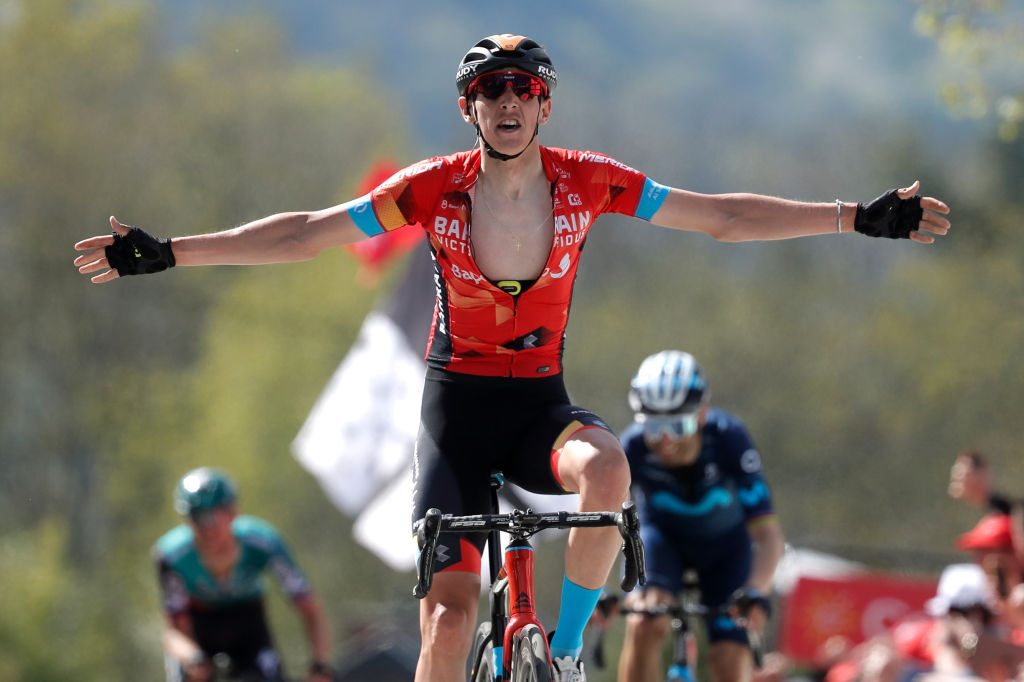
Each of the three Ardennes Classics has its own identity, quirks, and calling cards, from the technical course at Amstel Gold, the steep Mur de Huy finish at La Flèche Wallonne, and the brutal accumulation of climbing at the mammoth Liège-Bastogne-Liège.
But all races evolve and change, with both Amstel and Liège having altered their courses in recent years. Both races have moved away from holding finishes atop or just after the top of a hill, a formula which had turned stale, limited race tactics and even business opportunities for race organisers.
In Amstel's case, the Cauberg finish was done away with in 2017, replaced with a final rise up to a flat final kilometre, while at Liège, the old flat finish by the River Meuse was reintroduced three years ago, replacing the old hilltop finish in Ans next to a Pizza Hut and a Carrefour supermarket.
At Flèche, meanwhile, the finish atop the steep slopes of the Mur de Huy has held strong since 1983, celebrating its 40th year as host of the race final last week. Despite the thrill of the final 1.3km up the Chemin des Chapelles, it's hard to argue that there's much reason to watch the race before the peloton reaches that last incline.
Altering a race, especially the defining feature of one, always brings objections from fans and people around the sport. We've seen it at both Amstel and Liège, and most memorably in recent years with the total alteration made to the Tour of Flanders. At worst it can argued that, following the change in Flanders, the race is merely as exciting as it was before, while few would call for the return of the Cauberg and Ans finishes at the other two Ardennes Classics following a series of thrilling finishes since the changes.
Maybe it's time for La Flèche Wallonne to consider making a change, too. A finish moved back beyond the peak of the Mur de Huy, for example, could freshen up a format which, year after year, has shown itself to be a predictable one. (DO)
Mass crash in men’s race raises concerns about excessive risks in one-day Classics
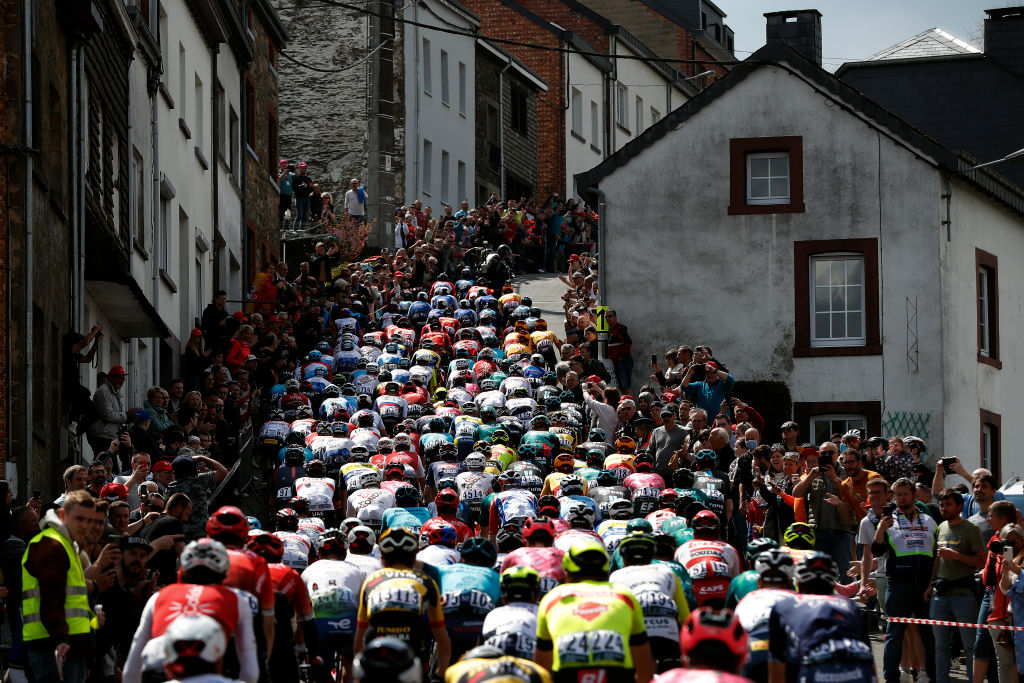
The huge crash in the men’s Liège-Bastogne-Liège and similar crashes in some of the women’s spring Classics again highlighted the dangers of one-day racing and the need for more respect amongst the riders for their own safety.
This time World Champion Julian Alaphilippe was worse off as riders ahead of him jostled for position on a straight downhill section of road at 70 kph, sparking the crash. Alaphilippe suffered a fractured shoulder blade, two fractured ribs, and a collapsed lung after he dived off the road into the trees.
Fellow French rider Romain Bardet sacrificed his own chances to help Alaphilippe and bring attention to the paramedics. Bardet also called on the riders to take responsibility for the risks they take.
“The crash makes me think about our common responsibilities to prevent accidents like this, which could have ended tragically, and about the respect we have to show each other as riders,” he wrote on social media.
“The responsibility you have when you take risks to get to the front can have serious consequences for the 100 guys behind you.”
A number of experienced riders have talked about a lack of respect in the modern peloton, with younger riders apparently ready to take huge risks and fight for the best positions in the peloton.
The UCI has started to collate a crash database to study the causes and the effects but the growing amount of traffic furniture - designed to slow motor vehicles - is only increasing the risks of crashing and of injury.
“I want to say something to the bravest riders: We’re crazy, we’re taking too many risks on roads that sometimes are very narrow. That’s how we survive in races but sometimes it’s your turn to crash,” Rigoberto Uran said prophetically as he licked his wounds after being involved in the crash. (SF)
Dani Ostanek is Senior News Writer at Cyclingnews, having joined in 2017 as a freelance contributor and later being hired full-time. Before joining the team, she had written for numerous major publications in the cycling world, including CyclingWeekly and Rouleur. She writes and edits at Cyclingnews as well as running newsletter, social media, and how to watch campaigns.
Dani has reported from the world's top races, including the Tour de France, Road World Championships, and the spring Classics. She has interviewed many of the sport's biggest stars, including Mathieu van der Poel, Demi Vollering, and Remco Evenepoel, and her favourite races are the Giro d'Italia, Strade Bianche and Paris-Roubaix.
Season highlights from 2024 include reporting from Paris-Roubaix – 'Unless I'm in an ambulance, I'm finishing this race' – Cyrus Monk, the last man home at Paris-Roubaix – and the Tour de France – 'Disbelief', gratitude, and family – Mark Cavendish celebrates a record-breaking Tour de France sprint win.